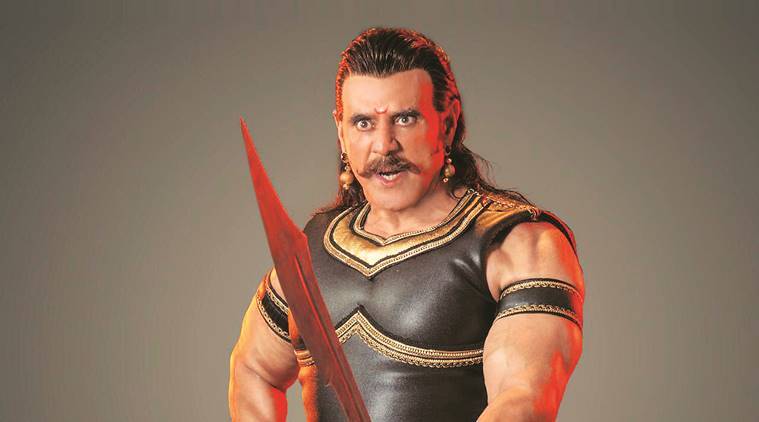His name has become synonymous with Duryodhan since he played him in BR Chopra’s epic television series Mahabharat. Interestingly, impressed by his physique, the filmmaker had initially wanted to cast him as Bheem, but it was Puneet Issar himself who pitched for the role of Duryodhan and bagged it on the strength of his fiery histrionics, deep baritone, command over both Hindi and Urdu and his familiarity with Ramdhari Singh Dinkar’s Rashmirathi and Maithili Sharan Gupt’s Jayadrath Vadh.
Three decades later, Puneet returns as the eldest Kaurav in Krishna’s backyard. On Monday, November 15, he will stage Mahabharat The Epic Tale, a play he’s also written and directed, in Mathura-Vrindavan. It’s triumphant run had been cut short by the Coronavirus-triggered pandemic. “A lot has changed since March 2020, today everyone in our 60-member troupe is vaccinated, but there will still be regular RTPCR tests and all Covid protocols will be followed. We’ve created a bio-bubble, with tight security keeping star-gazers at bay. Our two sets of props, costumes and sets had been gathering dust in godowns in Mumbai and Delhi. It’s great to get them out and be back in action,” beams the actor who plays the older Duryodhan while son Siddhant enacts a younger version of the iconic character. “Siddhant is the root while I’m the tree,” quips Puneet.
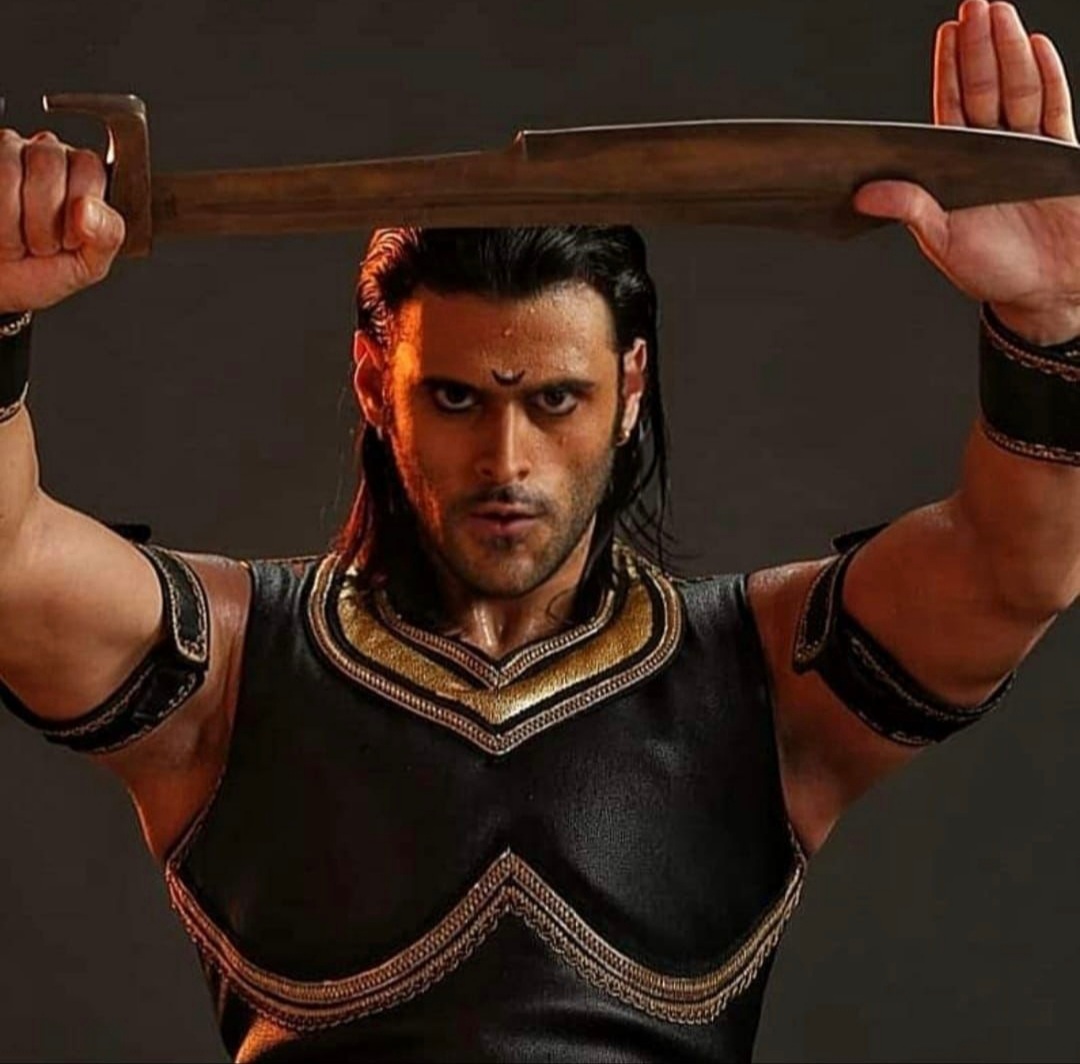
Gufi Paintal who was there in BR Chopra’s Mahabharat returns to reprise the role of Shakuni. Popular model Karan Sharma is Arjun, Siya Ke Ram’s Hanuman, six-feet-six-inches giant Danish Akhtar is Bheem, Rahul Bhuchar plays Karan and Yashodhan Rana is Krishna. Among the important female characters, Diksha Raina plays Kunti, Aarti Nagpal is Gandhari, Harleen Kaur is Draupadi and Tapasya Dasgupta is Dharti Mata, the narrator.
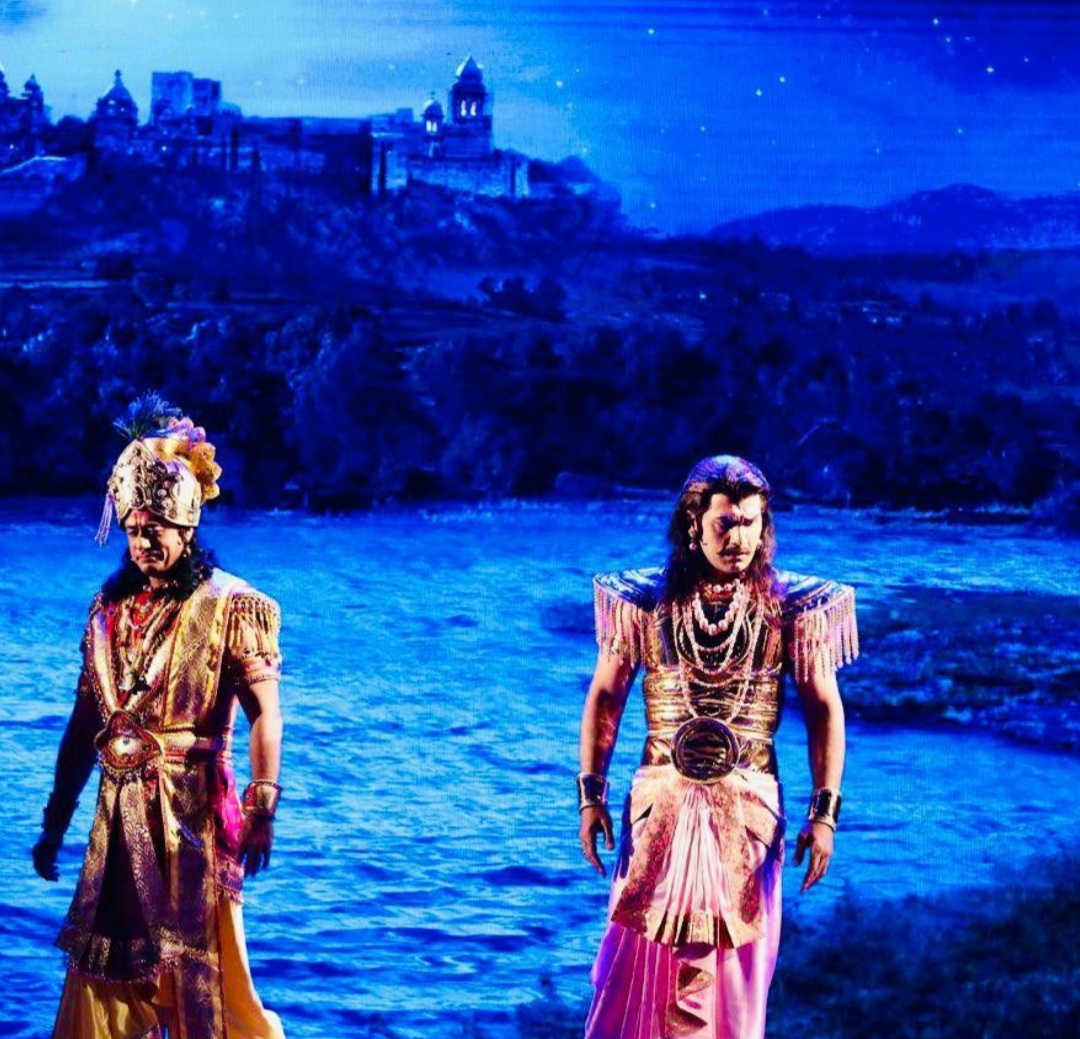
Pointing out that Chopra’s Mahabharat was Bheeshma Pitamah’s take while others have seen it through Krishna, Draupadi, Yudhishthir and Arjun eyes, Puneet asserts that what makes the play, which he has co-written with his son, different is that it is a tale of friendship between Duryodhan and Karan while also covering the important chapters in the epic. The execution too is different.
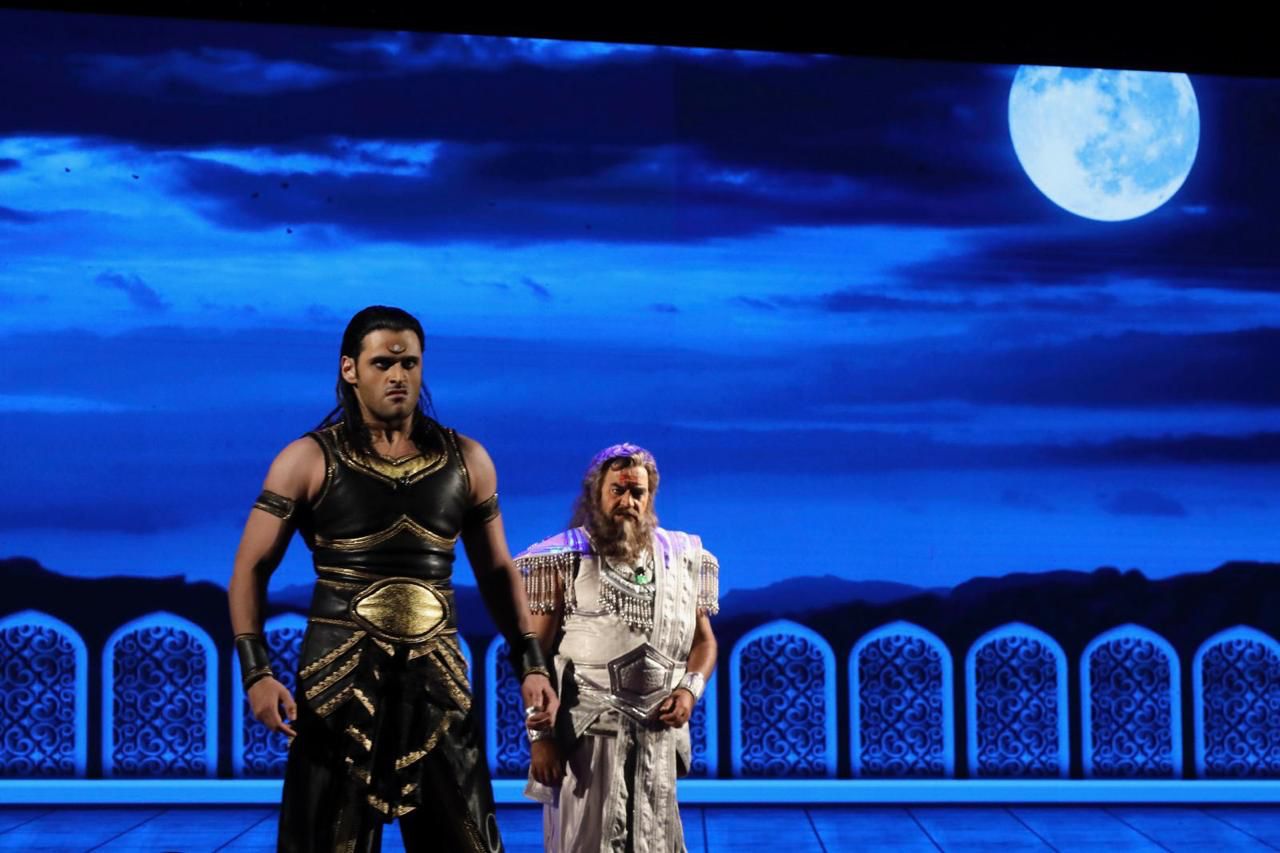
“We have giant LED screens playing behind the actors and props in front of them to give our Mahabharat the effect of a 3D film. So, in the scene where Parashuram curses Karan in the gurukul for lying to him about being a Brahmin, you will see moving visuals of birds flying and chirping and deer flitting through the dense foliage on the screen which combines with the trees and other props on stage to create the impression of a jungle,” Puneet explains, adding that after Arjun kills Karan and during his funeral, the screen will show images of scattered corpses and burning pyres. “And during the vastraharan, Dushasan dragging Draupadi by the hair will walk through the audience up to the stage.”
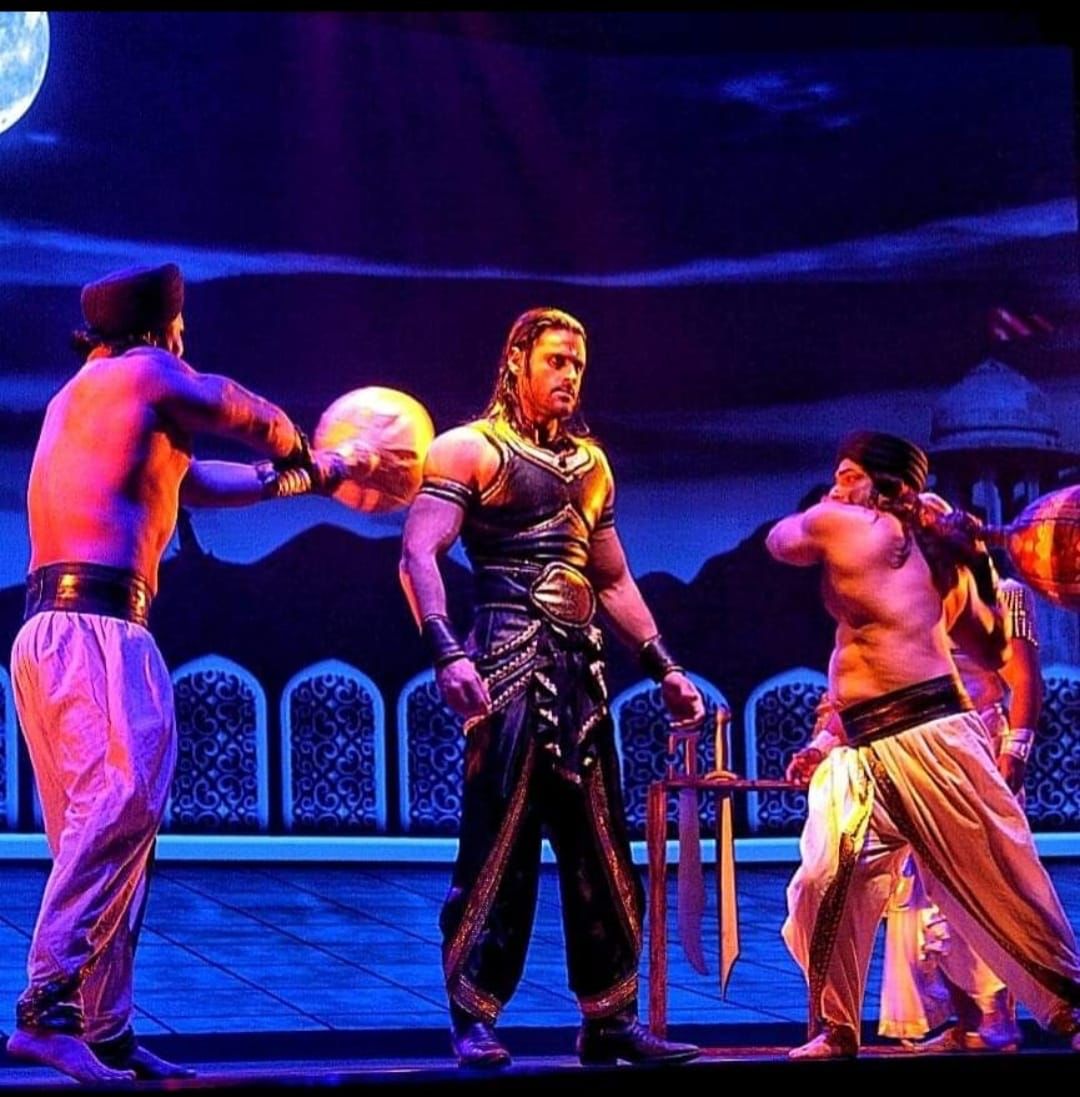
It was his attempt to humiliate a woman in public that branded Duryodhan a villain despite his argument that he had been the best son, brother, student and friend, even the best foe to his Pandav cousins. For Puneet, Raavan and Duryodhan were the two best villains in our mythology and he is excited to return to fight an epic battle again, pointing out that the Mahabharat wouldn’t have happened had it not been for Draupadi.
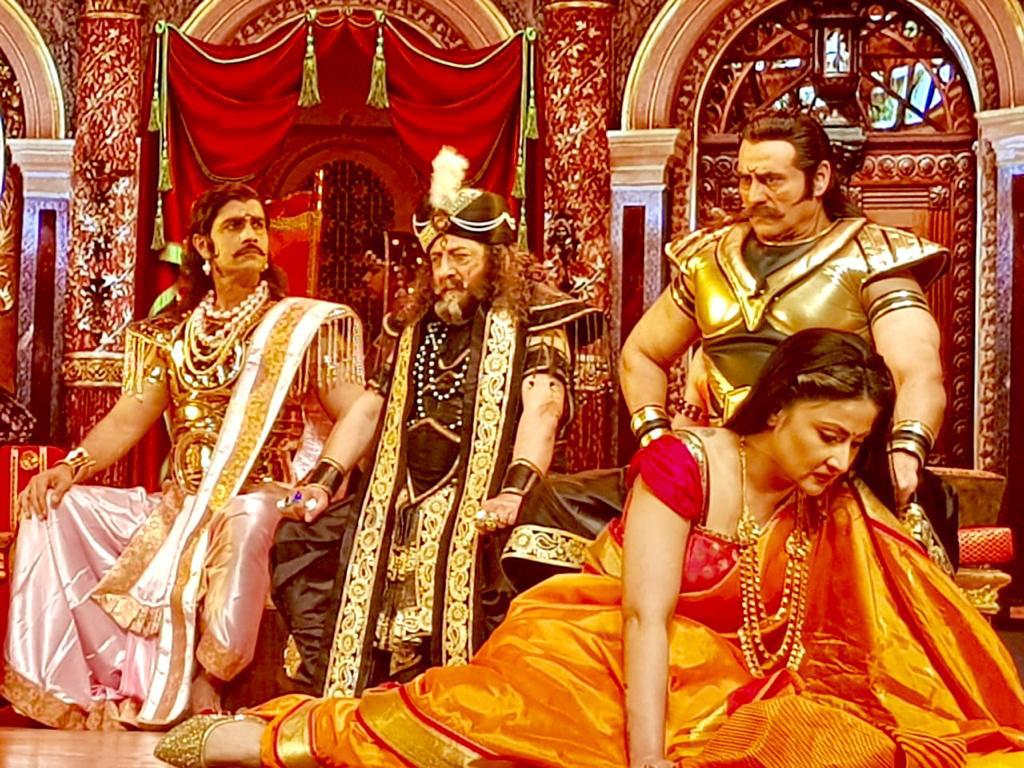
“What I like best about this epic is that there are no white or black characters, every character is grey. Even Yudhishthir who is 99 percent white has a streak of grey in him. That makes it interesting for me as an actor and director. Also, it doesn’t tell us what we should do, rather it tells us what we shouldn’t do. This show is just the beginning of a second innings, there will be many more shows in November and December,” he signs off, excited that he will be touring with his Mahabharat again.


